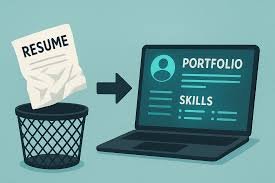
Master the Huddle: Top Ways to Talk About Your Teamwork During an Interview (With Samples) In nearly every job interview, you’ll be asked to describe your teamwork skills. Why? Because virtually no role exists in a vacuum. Companies thrive on collaboration, and hiring managers need to know that you can not only perform your individual tasks but also contribute positively to the collective success of a team. However, simply saying, "I'm a great team player," is a missed opportunity. You need to demonstrate how you operate within a team, providing concrete examples that highlight your specific contributions, problem-solving abilities, and communication style. This guide provides a playbook for mastering the "teamwork" question, using the powerful STAR method and offering specific, high-impact sample answers. Why "Teamwork" Questions are Crucial Hiring managers aren't just looking for someone who "gets along" with others. They are assessing four key attributes: Collaboration Style: Do you actively contribute, or do you passively follow? Conflict Resolution: How do you handle disagreements or setbacks within the group? Communication: Can you articulate complex ideas clearly and listen effectively? Shared Ownership: Do you take responsibility for both team successes and failures? The Strategy: Using the STAR Method The best way to answer any behavioral question (including those about teamwork) is to use the STAR method. This structure ensures your answer is concise, relevant, and compelling. S - Situation: Briefly describe the background or context. T - Task: Explain your goal or the objective the team needed to achieve. A - Action: Detail the specific steps you took to contribute to the team. (This is the most important part—use strong action verbs!) R - Result: Share the quantifiable outcome and what you learned. Top Ways to Frame Your Teamwork Skills (With Samples) Instead of waiting for the generic "Are you a team player?" question, prepare answers that showcase different facets of effective teamwork. 1. Showcasing Collaboration and Shared Vision This frame highlights your ability to align your efforts with the team’s overall objective and ensure everyone is working toward the same goal. Question Example: "Describe a time you had to work with people from different departments or with different priorities to achieve a common goal." Sample Answer (STAR Format): S (Situation): "In my last role as a Marketing Analyst, our company decided to launch a new software product in a completely new market segment." T (Task): "My team’s task was to create the go-to-market strategy, but we needed crucial input on product features from Engineering and budget approval from Finance—both teams had separate, demanding deadlines." A (Action): "I proactively organized a joint kickoff meeting with key stakeholders from all three departments. Rather than just asking for their input, I structured the meeting to focus on shared customer benefit and created a single, collaborative spreadsheet that tracked everyone’s dependencies. I took the initiative to translate the technical product features into marketing benefits for the Engineering team and financial projections for the Finance team." R (Result): "By maintaining clear, consolidated communication, we ensured all teams were aligned from the start. We launched the product on time, and the cross-functional effort resulted in a 15% higher initial conversion rate than projected, proving that early collaboration was key to our success." 2. Highlighting Conflict Resolution and Diplomacy Teamwork inevitably involves conflict, whether it’s a disagreement over strategy or a clash of personalities. Showing you can navigate this professionally is a massive plus. Question Example: "Tell me about a time you disagreed with a teammate or manager on how to proceed with a project." Sample Answer (STAR Format): S (Situation): "During a major website redesign project, the lead designer and I had a fundamental disagreement about whether to prioritize a minimalist aesthetic (their view) or a feature-rich, detailed layout (my view, backed by initial user data)." T (Task): "The task was to decide on the final structure of the homepage that would best meet both design standards and user conversion goals, without causing a project delay." A (Action): "First, I listened carefully to the designer's rationale for prioritizing aesthetics. Instead of debating, I proposed a diplomatic solution: we would not proceed based on opinion, but on empirical data. I quickly set up an A/B test with two minimal wireframes: one minimalist and one feature-rich. I ensured the test ran only for 48 hours to minimize delay." R (Result): "The data clearly showed the feature-rich layout drove 10% more user sign-ups. The designer accepted the data, and we collaborated to incorporate the necessary features into a slightly more minimalist design. We maintained a positive working relationship, and the final design exceeded the quarter's conversion target by 8%." 3. Demonstrating Support and Shared Load This frame proves you are not a siloed worker and are willing to step in and help others, especially when a team member is struggling or overwhelmed. Question Example: "How do you handle it when a team member is failing to meet their deadlines or struggling with a task?" Sample Answer (STAR Format): S (Situation): "I was managing the final stages of a critical client deliverable. One junior team member was clearly overwhelmed and missed a key checkpoint, putting the entire project timeline at risk." T (Task): "My task was two-fold: ensure the project stayed on track and address the team member's struggle in a supportive, constructive manner." A (Action): "I approached them privately and asked if they needed support, emphasizing that the team was here to help. They admitted they were struggling with the data visualization tools. I immediately redistributed their remaining workload across myself and another senior team member to relieve pressure. I then spent one hour coaching them on the specific visualization tool they struggled with, not to fix the current project, but to build their long-term skill." R (Result): "The deliverable was submitted on time, and the client was extremely satisfied. More importantly, the junior team member felt supported and grateful, significantly boosting their confidence and subsequent performance. They became a highly reliable contributor in future projects." Key Takeaways for Talking Teamwork Use Strong Verbs: Instead of "I helped," say "I coordinated," "I mediated," "I streamlined," or "I initiated." The "We/I" Balance: Use "we" when discussing the team's objective and ultimate success, but use "I" when detailing your specific, active contribution. Never take sole credit for a team win, but be clear about your role. Quantify the Impact: Always end with a metric. The outcome of your teamwork should translate into tangible results (e.g., "saved 20 project hours," "increased efficiency by 12%," "client satisfaction score improved"). By preparing three different STAR stories that cover collaboration, conflict, and support, you will be ready to tackle any teamwork question with confidence and compelling evidence. FAQs on Teamwork Interview Questions 1. Should I ever talk negatively about a past teammate? Absolutely not. Talking negatively about a past colleague (even if they were difficult) is a major red flag for a hiring manager. It suggests a lack of diplomacy, an inability to manage conflict, or a tendency to blame others. When discussing conflict, focus the story on the process you used to resolve the issue (e.g., mediation, data-driven compromise) and the positive outcome, rather than the teammate's fault. 2. What if I don't have a specific teamwork example from a past job? If you are an entry-level candidate or making a career pivot, draw examples from other areas: Academic Projects: Team projects for your degree, thesis work, or group case studies. Volunteer Work: Coordinating volunteers for a non-profit, organizing a fundraising event. Extracurricular Activities: Leading a sports team, managing a student club, organizing a competition. The key is to use the STAR method to demonstrate professional skills, even if the context is non-professional. 3. What is the single most important teamwork trait to highlight? The most important trait to highlight is proactive accountability and initiative. Interviewers want to know you don't wait for instructions but actively seek ways to contribute, identify problems, and propose solutions before they escalate. This is the difference between a good team member and an exceptional one.










